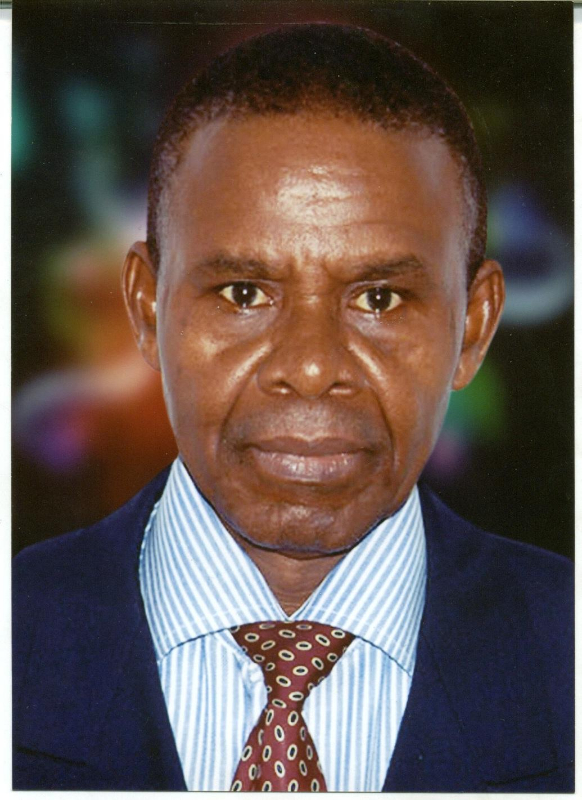
BY CHIMA NWAFO
Although water has always featured prominently in Nigeria’s development plans of yore and annual budgets of federal and state governments, yet the pledge of providing potable water to the citizenry remains one of the several unfulfilled election promises by politicians. Even when provided in the rural communities, mostly by donor and humanitarian agencies, pressure due to inadequacy of pumps and lack of maintenance, the facilities often broke down earlier than their projected life-spans, taking the supposed rural beneficiaries back to square one. This is not an assertion but experiential reality.
Given that checkmating the spread of the rampaging corona virus demands regular washing of hands with water, soap/sanitizer, it’s necessary to see how experts view the importance of water and hygiene. Albert Szent-Gyorgyi, M.D., who discovered Vitamin C, described Water as “life’s matter and matrix, mother and medium. There is no life without water.” And to the World Health Organisation “Hygiene refers to conditions and practices that help to maintain health and prevent the spread of diseases.” Personal hygiene, as captured by Wikipedia, refers to maintaining the body’s cleanliness. Many people equate hygiene with ‘cleanliness,’ but hygiene is a broad term. It includes such personal habit choices as how frequently to take a shower or bath, wash hands, trim fingernails, and wash clothes. It also includes attention to keeping surfaces in the home and workplace, including bathroom facilities, clean and pathogen-free.”
Post-war Nigeria seems to be slanting steadily on a trajectory of socio-economic retrogression, driven by an insouciant and self-serving political leadership. As a preteen village boy in the First Republic, I saw and heard of government projects being implemented without anyone knowing their cost. From the 1970s, you hear of monumental development plans, including the popular nation-wide River Basin Development Authorities, most of which were abandoned by succeeding administrations for no justifiable reasons. In the last two decades of unbroken democratic dispensation, we have seen more political theatrics, characterized by allegations and counter-allegations of sleaze and sound-bites of colossal public projects usually expressed more by their humongous sums of Naira or Dollar value than service delivery or projects completed. We have also seen more borrowing and appeals for funds from supra-national agencies and developed nations.


In June 2017, it was reported that the Water Sanitation and Hygiene (WASH) Development Group in Nigeria has pledged $700 million to fund water and sanitation programmes in the country. The boss of WASH-UNICEF Nigeria, Mr Zaid Jurji, disclosed this on behalf of other organisations at a stakeholders meeting organised by the Ministry of Water Resources in Abuja. According to him, “the funds will be used to support Federal Government’s Partnership for Expanded Water, Sanitation and Hygiene (PEWASH) programme, which has 2030 as its deadline. For the years 2016 to 2030, there is an accumulated figure of $0.7 billion to support the Water, Sanitation and Hygiene sector.”
In the traditional confidence of these agents, Jurji said that the Federal Government had shown a commitment to meeting this goal of increasing access to water and sanitation, saying with strengthened collaboration, this target would be met. He noted that coalition of partners working on scaling up access to water and sanitation had the required tools and guidelines to make it a reality, and called for a commitment from all stakeholders to meet this goal.
And for an official seal, Minister of Water Resources, Mr Suleiman Adamu, was confident that Nigeria would meet the Sustainable Development Goal 6 on water and sanitation, with the inauguration of the PEWASH programme. Adamu said that since inception in 2016, 12 states had shown interest to come on board. And that is a programme designed to benefit Nigerians across 36 states of the federation, the Federal Capital Territory and the 774 local government areas and municipalities.
Take a look at the group working to help Nigeria develop her Water Sanitation and Hygiene deficiency: UNICEF, AfDB, Islamic Development Bank, USAID, EU, JICA, World Bank, etc. This is clear evidence of total dependence, in a republic endowed with enormous human and material resources. More evidence follows.
In 2018, the United States Agency for International Development contracted Research Trust International (RTI) to implement the Effective Water, Sanitation and Hygiene Services (E-WASH) programme “to improve the availability of clean water and sanitation in Nigeria’s poorest urban neighbourhoods. We expect to improve water delivery to 500,000 households by boosting productivity and the efficiency of State Water Boards (SWBs), many of which are balanced precariously between top-down government directives and an ongoing responsibility to deliver services to millions of customers.”

RTI estimated that, of Nigeria’s population of more than 203 million people, 71 million do not have access to clean water and 130 million do not have access to basic sanitation. These estimates are very moderate unless it’s limited to the urban neighbourhood. All the same, this lack of water, sanitation, and hygiene services – “exacerbated by accelerated urbanisation, poor cost recovery, and weak governance and institutional frameworks – adversely affect citizens’ health, as well as access to educational and economic opportunities and work efficiency and labour productivity.”

Coming from a quintessential federal system administration where water is a state utility, naturally, they found the assignment complicating, being engaged by the Federal Government to work with 36 states, “each of which operates with different institutional structures, power dynamics, and little or no regulatory oversight.” RTI also noticed that in most states, a State Water Board is responsible for providing water and sanitation services. “On the whole, however, SWBs are hobbled by nonexistent or weak incentives for better performance, ageing infrastructure, inadequate or ineffective operations and maintenance, weak institutional capacity, and little accountability to consumers.”
A little research would have helped them understand that even in Lagos, the epicentre of industrialisation housing majority of the nation’s private sector upper-class and high net-worth individuals, their corporate and residential water needs are not met by the SWB. Just like electricity, companies and city-dwellers provide the bulk of their domestic water needs.

With their expertise and commitment to delivery, the USAID E-WASH, worked out a four-pronged approach to improving the viability of SWBs. Details of which we cannot reproduce.
But RTI has to contend with the reality that democratically elected politicians promise free water to their constituents, “but the SWBs, which ultimately provide this resource, need to be accountable to these same constituents as commercial customers on whom their revenue depends. Ultimately, the system erodes public trust in both state government and SWBs, with neither fully accountable for their water and sanitation services, while cost recovery for urban WASH services is severely constrained.” Though the Americans mean well, the Nigerian system has in-built dysfunctional policies and bottlenecks that cripple efficiency and service delivery.
Again, on March 13, 2019, the Federal Executive Council (FEC) approved the sum of €64.75 million to improve water supply in Kano State alone. Hajia Zainab Ahmed, the Minister of Finance, disclosed this while briefing State House correspondents after the FEC meeting presided over by President Muhammadu Buhari at the Presidential Villa in Abuja.

Her words: “Today, at the FEC meeting, we got an approval for a facility in the sum of €64,750,000 for a National Urban Water sector reform project in Kano State. The project is to rehabilitate and build infrastructure needed to increase access to water services to the population in greater Kano and to help improve key sector reforms to ensure the sustainability of the project.”
Note the term ‘National Urban Water’, for a state which is supposed to be part of the 2016 -2030 UNICEF-led Nigerian Group on Water, Sanitation and Hygiene project and the 2018 USAID-E-WASH programme. Despite the mind-boggling sum, “the project is to improve the living conditions of up to 1.5 million people in the greater urban area of Kano,” a state with over 10 million population; and to “increase the financial viability, etc., of the State Water Board”, which is the main objective of the USAID-E-WASH project. The minister said that the funding was from the French Development Agency with an interest rate of 1.02 per cent, a repayment period of 20 years and a seven-year moratorium period. This is a well-warped web of debt peonage.
From Niger State comes the next report: Governor Abubakar Sani Bello – who endeared himself to Nigerians last week as an exception to what has become the rule of executive lawlessness in the last 20 years – discountenanced party pressure and watched the swearing-in of an opposition party candidate as chairman of a local government council, based on a high court verdict, saying: “We must begin to respect the rule of law in this country.” One hopes other governors are listening!

The news, however, is that the governor was also applauded for assenting to the Water, Sanitation & Hygiene (WASH) Bill which will enhance the autonomy of the State Water Board and establish its independence to deliver safe, clean and potable water to the people of the state, last Wednesday, May 20.
According to CODE, an Abuja-based group, the bill had the support of the USAID Effective Water Sanitation and Hygiene Services Programme, designed to help the state eradicate bottlenecks holding back the need for the state WASH sector to be effective.
If efficiently implemented with commitment as pledged on paper, these WASH projects would have started yielding results for the benefit of the populace before the invasion of COVID-19 which demands regular washing of hands and personal hygiene.
*Nwafo, Consulting Editor, News Express/Environmental Analyst, can be reached on: [email protected]; +2348029334754.
Share your story or I Witness Reports with us 24/7 via: SMS: +234 (0)9076248001
Whatsapp: +234(0)8072022024, Email: [email protected], follow us on our social platform. Subscribe to our YouTube @Gatmash TV. Gatmash Blog is one of the most sought- after news portals, with increasing audience, exclusive breaking news and reports across the globe. Plus more. Website: www.gatmash.com
For advert placement, contact us today via email: [email protected] or call our hotlines on Tel: +234(0)9076248001





